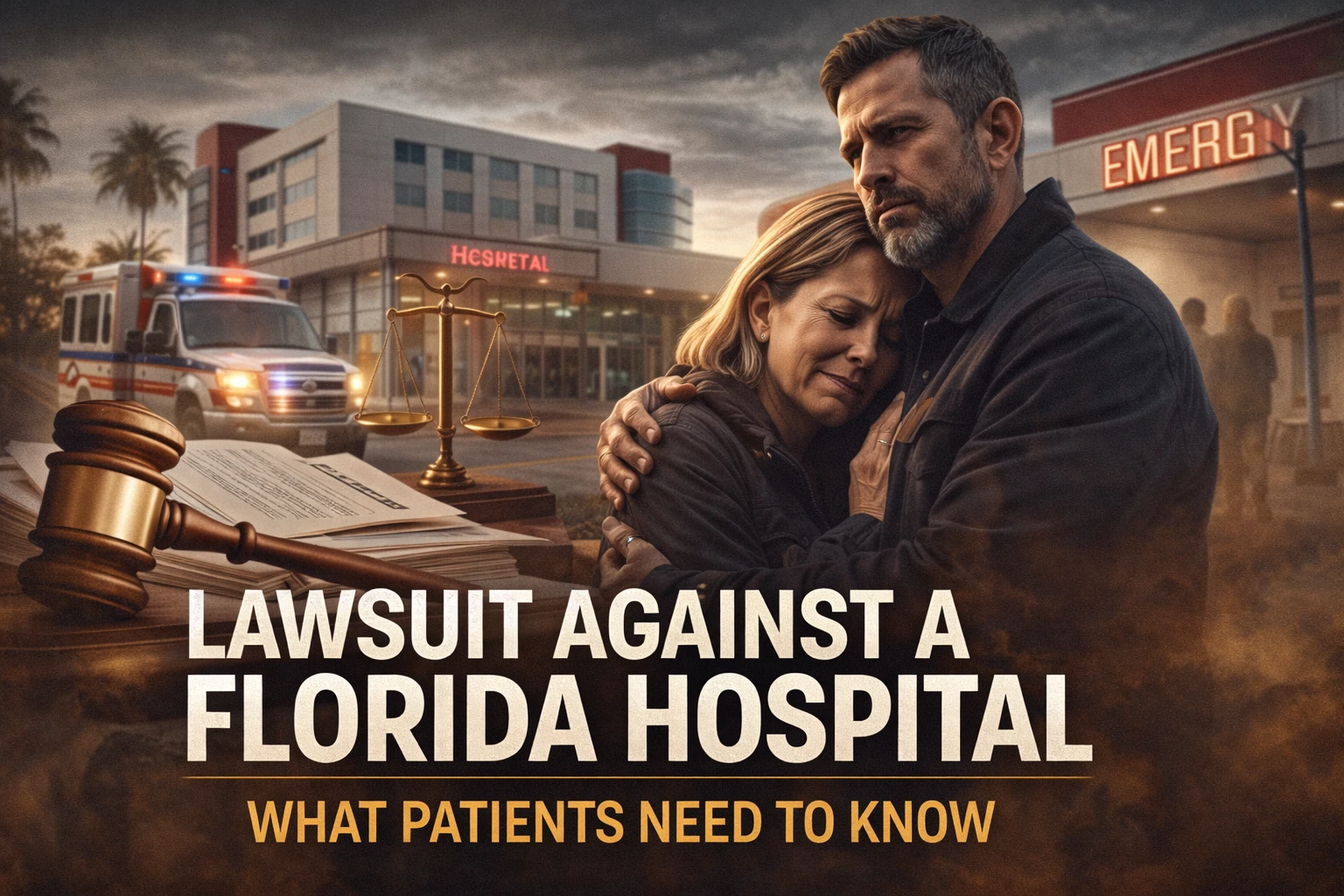Hospitals serve one purpose to help people heal. They offer care, skill, and a safe place in times of need. Patients go there during life’s hardest moments. They place their trust in doctors, nurses, and staff. That trust is not small. It carries deep meaning. It shapes how people feel about their health and safety. When that trust breaks, the pain grows worse.
In Florida, a well-known hospital now faces legal action. Families say the hospital caused harm. Some lost loved ones. Others suffered lasting injuries. They believe the care they received was careless, rushed, or unsafe. These claims raise serious concerns. They point to problems with how the hospital operates. They raise questions about training, staff levels, and patient safety.
This lawsuit tells more than one story. It speaks for many people who feel the same pain. The case has caught attention across Florida. People want answers. They want to know what failed and how to prevent more harm.
This guide covers the full case. It shows what started the lawsuit. It explains each claim in plain terms. It also shares what other patients need to know. If a hospital caused harm to you or your loved one, this guide may help you understand your rights and what action to take next.
What Caused the Lawsuit?
The case began after a man went to the hospital with chest pain. The hospital sent him home. Hours later, his heart stopped. He died before help arrived. His family now says the hospital ignored clear signs of a heart attack. They believe staff failed to act in time.
This story sparked more people to come forward. Other patients say the same hospital missed key steps in their care. One woman says her mother lay in pain for hours without a doctor. Another claims a nurse gave the wrong medication, which led to a severe reaction. In every story, the common point is failure. The hospital staff either waited too long, made the wrong call, or gave no help at all.
Now, these families seek justice. They want answers. They want someone to take responsibility.
The Legal Claims Against the Hospital
This lawsuit is not just about one patient. It is about a pattern. A pattern of harm, error, and silence.
What Proof Do the Families Have?
Families who filed the lawsuit say they have strong proof. One family has a copy of test results that showed danger, yet no one followed up. Another has video from the waiting room. It shows a man in pain who got no care for nearly an hour.
A different patient says her chart was changed after she asked questions. She saved her own notes and pictures. Another patient kept phone records that show how long she waited on hold when calling for help.
This kind of evidence builds a case. It tells a story that records alone may not show. These patients want the truth to come out, and they want the court to hear what really happened.
What the Patients and Families Want
Most people do not sue to get rich. They sue to make things right. The families in this lawsuit say they want justice. They lost loved ones. They spent thousands on care that failed them. Now they deal with grief, bills, and broken trust.
They want the hospital to admit fault. They want to see changes in the system. More training. More staff. Better rules. They want others to be safe.
Some seek money to cover costs. That includes medical bills, funeral expenses, and lost wages. Others ask for payment for pain and stress. In the worst cases, families ask for extra damages to punish the hospital for deep wrongdoing.
These families do not want anyone else to go through the same thing. That goal drives the lawsuit forward.
What to Expect in the Court Process
The lawsuit has entered the court system. Lawyers from both sides are now involved. Each side must share documents, records, and statements. This is called discovery. It helps the court learn what happened.
The hospital may offer a settlement. That means they offer money in exchange for dropping the case. Some families may accept. Others may want to go to trial. That is a choice each family makes with their lawyer.
If the case reaches trial, the process may take many months. The court will review all facts. Witnesses may take the stand. Each side will present its side clearly. Then the judge or jury will decide what happens next. If the families win, the hospital may need to pay for the harm it caused.
What This Means for Other Patients
This case speaks loud and clear. It warns patients to stay alert. Ask questions. Speak when something feels off. Do not stay silent. You have rights. You deserve care that meets safe and fair standards. You deserve the truth if things go wrong.
If a hospital hurt you or a loved one, take action. Speak to a lawyer who understands these cases. Many lawyers give free case reviews. They will hear your side and tell you if you have a claim.
Keep your records safe. Hold on to emails, charts, and reports. Write down each step of what took place. Take photos if you can. The more you keep, the stronger your case can be.
You are not alone. Others have faced this. Others have fought back and won. You have the power to do the same.
You are not alone. Others have faced this. Others have fought back and won. You have the power to do the same. If your case involves senior care or hospital neglect, learn when to hire an elder law attorney.
Hospital Lawsuit FAQs
Q. What makes a hospital face a lawsuit?
A hospital may face a lawsuit when it fails to give proper care. Delays, wrong medicine, or missed steps can cause harm. If a mistake hurts a patient, the law may hold the hospital responsible.
Q. Can a patient sue after signing a consent form?
A signed form does not excuse poor care. If the hospital acted in a careless or unsafe way, a patient may still file a claim.
Q. How much time do you have to sue in Florida?
Most patients in Florida have two years to file a case. That time starts when the harm happens or when the patient first notices it.
Q. Do you need to pay a lawyer before the case starts?
Many lawyers do not ask for payment up front. They take a share only if the case wins. Most also offer a free first meeting to review your case.
Q. What should a patient do after hospital harm?
Start by saving every record. Keep all emails, bills, charts, and notes. Take photos of injuries if you can. Then speak with a lawyer who knows hospital law.
Q. What kind of proof helps your case?
Helpful proof includes medical records, receipts, witness names, and written notes. A clear timeline of events also adds strength. Strong records help you prove your side.
Q. What can you get from a lawsuit?
A lawsuit may help you recover money for bills, pain, lost income, and stress. If the harm was severe, courts may award extra damages.
Final Thoughts
This lawsuit against a large Florida hospital highlights a deep problem. People walked in with hope and walked out with harm. Families now carry the weight of loss, pain, and doubt. But they also carry the strength to seek justice.
Hospitals must be safe. They must be honest. They must answer when things go wrong. That is not just law. That is basic human duty.
If a hospital caused you harm, take action now. Talk to someone who understands the law. Know your rights. Take that first step. Guard your health. Guard your future. Your voice counts. The law stands with you.
Disclaimer: This article gives general information. It does not give legal advice. Speak to a licensed attorney to discuss your case.




